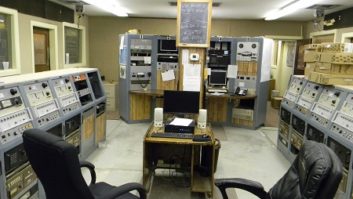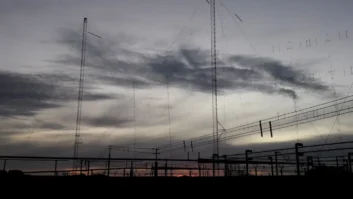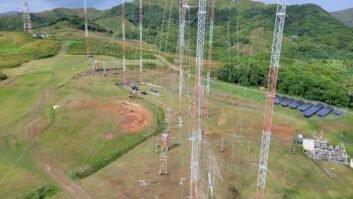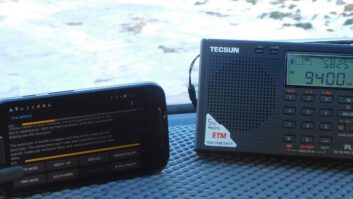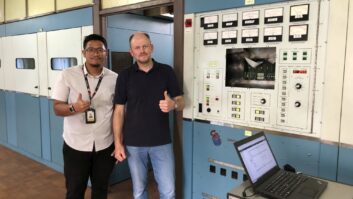A “mighty” Florida-based shortwave facility, formerly owned by Family Radio, will be back on the air soon following a sales agreement with another U.S.-based international broadcaster that will close its own smaller Florida shortwave site.
At least one interested observer hopes the move will provide encouragement to other shortwave broadcasters that might be considering scaling back operations.
WYFR in Okeechobee, Fla., used to broadcast Christian content to an international audience — the call letters reportedly stood for “We’re Your Family Radio” — but it turned off its signals in June. Come December, though, the big facility will go back on the air under a new owner.
Family Stations Inc., founded by evangelist Harold Camping, will sell WYFR to Radio Miami International, which currently operates a separate station, WRMI, in Miami. “Family Radio programming for the Caribbean and South America will return to shortwave via the Okeechobee site, and Radio Miami’s programming currently aired on WRMI in Miami will switch over to the Okeechobee facility,” WRMI stated in the announcement. “The station will also carry programs for other international broadcasters, including Pan American Broadcasting’s Radio Africa network.”
WRMI’s 50 kW transmission site in Miami will close, its call letters transferring to Okeechobee. No price for the transaction was stated.
Family Radio was co-founded by Harold Camping, known for his headline-making predictions of Judgment Day. The organization was in the news earlier this year for reportedly selling various assets.
The Okeechobee facility is the largest shortwave station in the United States by number of transmitters and antennas, according to the WRMI announcement. It has 13 transmitters, including a dozen 100 kW systems and one 50 kW. It uses 23 antennas that serve the Americas, Europe and Africa.
WRMI’s general manager is Jeff White, who is active in the international shortwave community, currently as secretary-treasurer of the National Association of Shortwave Broadcasters. In the announcement, he expressed gratitude to Family Radio for “entrusting us with this magnificent station” and called WYFR an important part of the heritage of shortwave broadcasting.
Reacting to the development, Dr. Adrian M. Peterson of Adventist World Radio issued a statement of congratulations and analysis. Peterson is a shortwave activist and supporter who writes the DX program “Wavescan,” heard, among other places, on WRMI Miami and soon moving to the new bigger facility. Jeff White produces that program.
“Over a period of many years, the original WRMI has performed an excellent service to the international radio world, and with their enlarged facility, their international radio impact will be greatly increased,” Peterson wrote.
“The significant move that WRMI is making adds a new dimension to current events in the international shortwave world. In an era when some international radio broadcasting stations have been diminishing their involvement in shortwave broadcasting, the move from a single transmitter near Miami to a multiple-transmitter facility in lower central Florida demonstrates a confidence in the viability of shortwave broadcasting that is still indeed valid. As so many international radio monitors are aware, the shortwave bands are still packed with the voices of many shortwave stations.”
Peterson said he hoped this “remarkable” transaction will give confidence to other stations that might be considering shortwave cutbacks and show that the technology “is still a valuable and viable method of international communication.”
Jeff White thanked Dan Elyea, longtime WYFR station manager and now retired, for his help in the agreement. “Dan presented us to Family Radio Vice President Tom Evans. Tom and the Family Radio Board have given us their confidence, and we will do our best to keep this station going for many years to come.”
High-frequency or shortwave broadcasting from the United States is a radio service licensed by the FCC to operate between 5,950 kHz and 26,100 kHz. It is an international broadcast service where transmissions are intended to be received by the public in foreign countries. The rules applicable to the service are in Part 73 Subpart F of the FCC rules.
Many large international broadcast organizations have scaled back shortwave operations or considered doing so, citing changes in consumer habits, expanded Internet access and the cost of operations.





